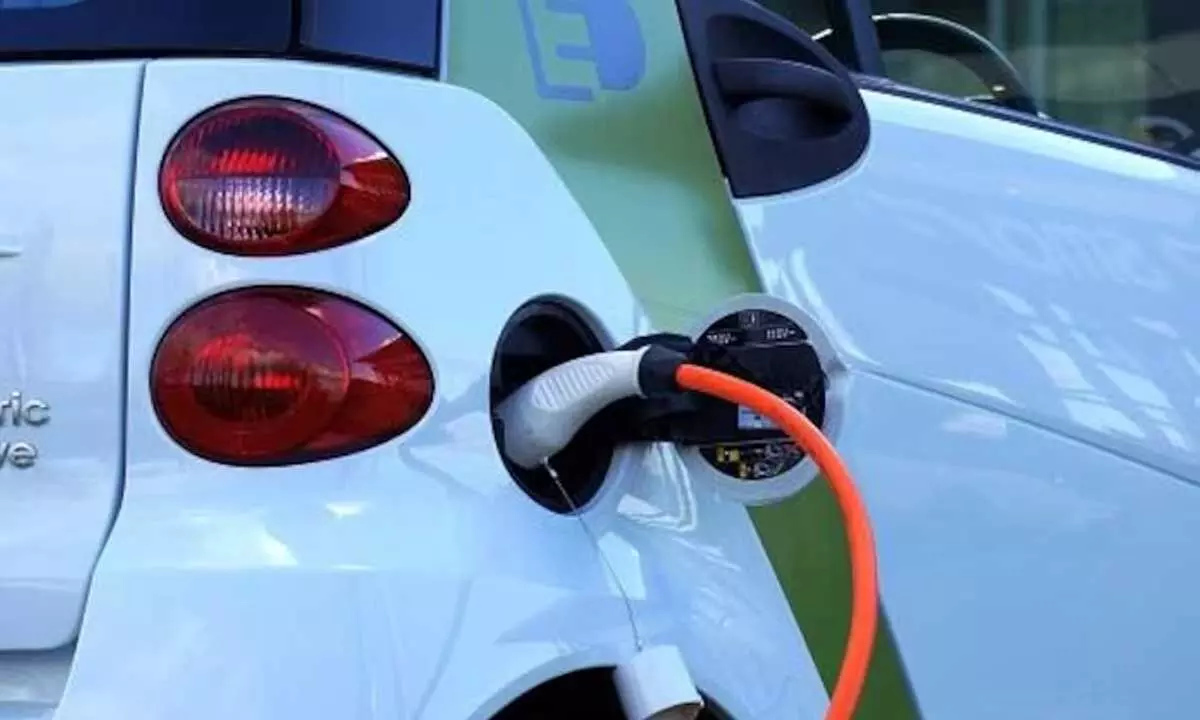India’s EV boom opens up vistas for job aspirants
Indian electric vehicle (EV) market is projected to grow from $3.21 billion in 2022 to $113.99 billion by 2029 at a CAGR of 66.52 per cent by 2029. With the government’s aim to go fully electric by 2030
image for illustrative purpose

Indian electric vehicle (EV) market is projected to grow from $3.21 billion in 2022 to $113.99 billion by 2029 at a CAGR of 66.52 per cent by 2029. With the government’s aim to go fully electric by 2030, several brands have come up in the segment. The aim of the government is to make EVs more affordable and reliable as alternatives to ICE. A recent report on Indian Electric Vehicle Market Trends and Analysis, prepared by Ad Astra, an HR and Recruitment Consulting firm, is an eye-opener. It suggests that EV makers and associated companies are said to go on a hiring drive this year when more green vehicles are expected to hit the road amid increasing push towards environmental sustainability, rising fuel prices and policy measures driving significant investments.
Hiring in this sector is expected to grow by 40-45 per cent in the next 6-12 months, according to industry officials and staffing companies. A significant employment growth and an average growth in employee numbers witnessed a 108 per cent increase in the last two years in the electric vehicle space. Engineering department has dominated the EV sector, followed by operation and sales, quality assurance, business development, information technology, human resources and marketing among others.
Interestingly, EV players hired 2,236 prsons in the last six months and women established their presence in almost all sectors. Quite a few companies like Kinetic Green,Mahindra Electric, Convergence Energy Services, OBEN Electric, Ampere Vehicles have women in top management positions. The e-scooter factory of Ola at Ranipet in Tamil Nadu is entirely run by women. India is investing highly in the electric mobility shift. If India sustains this green momentum, its EV segment will be a $206 billion opportunity by 2030.
There are four primary opportunity areas in the industry - original equipment manufacturers (OEMs), component manufacturers, engineering service providers (ESPs), and testing and certification agencies. All OEMs’ activities are unlocking considerable options across other employer segments. Component manufacturers rely on engineers to complement system development, with numerous positions available across model-based development, control systems monitoring, battery management systems (BMS) and more.
Semiconductor companies like Intel are also seeking engineers with EV powertrain knowledge, adding to a growing list of potential roles in the market. ESPs (TataElxsi notably) provide IT and engineering R&D related service and support, requiring resources dedicated to modeling and testing for some of the world’s biggest carmakers. Finally, many institutes and government regulatory bodies (ARAI, CIRT, C-DAC, etc.) are looking for qualified engineers to bring their EV knowledge to the monitoring and certification aspect of the industry. Overall, the EV ecosystem needs more than 10,000 engineers over the next 10–12 months. The current talent supply is inadequate since people with relevant skills are hard to find. But the situation bodes well for graduates and professionals wanting to enter the industry. By upskilling now, they can fit in highly sought-after profiles and hope to land up good opportunities within the year.

